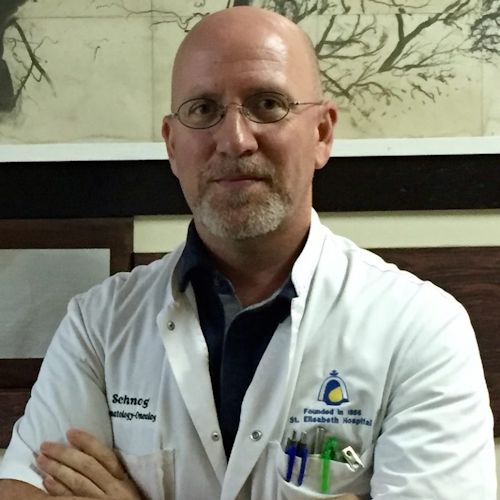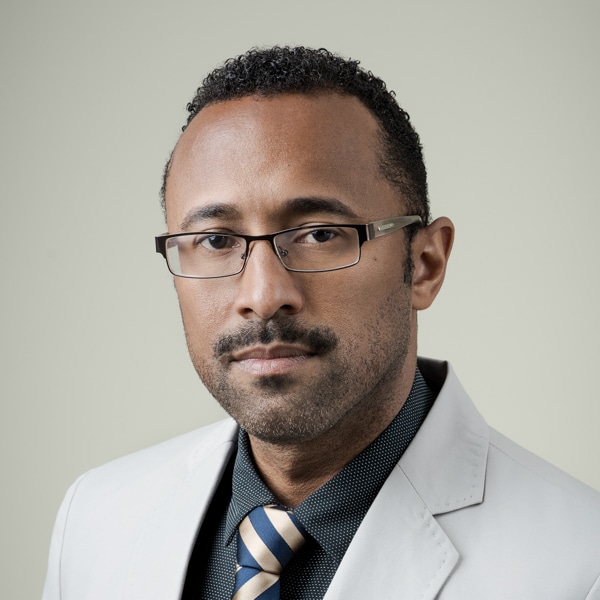Departments
Our departments form the core of our mission to improve health through regionally relevant research and innovation. From virology and immunology to oncology, epidemiology, and the social sciences, each department addresses urgent and emerging health challenges in the Dutch Caribbean.
Our research spans a wide range of topics including infectious diseases, cancer, chronic illness, mental health, and the public health impact of environmental threats such as microplastics while also building capacity for data-driven solutions and biomedical innovation across the region.
Explore each department to learn more about our focus areas, research priorities, and collaborative projects.
dept. of Immunology
dept. of Epidemiology
dept. of Social Sciences
dept. of Oncology
dept. of Virology
Capital Management Office

Department of Immunology
“Through computational modeling and systems biology, we unravel the complexities of immune responses to advance health in Curaçao and the Dutch Caribbean.”
In Silico Models for Cellular Immune Responses
Through computational tools based on a systems biology approach (including transcriptomics and proteomics), we simulate cellular immune responses. This allows for detailed analysis of disease-related differentially expressed genes and pathways. Current research topics include:
- Innate Immune Response and IFN Pathways: Investigating primary viral infections and their associated immune responses.
- Viral-Viral Interaction: Understanding the dynamics of multiple viral infections during immune responses.
- Drug Repurposing Programs for infectious diseases: Identifying new uses for existing drugs to combat infectious diseases.
- Epigenetic Pathways and defining immune responses: Focusing on miRNA-based pathways and their role in modulating immune functions.
- Autoimmune Disease Pathway Simulation: Analyzing pathways and their effects to improve understanding of autoimmune disorders.
HIV Treatment Programs
Our department develops models for effective HIV registration and treatment outcomes in Small Island Developing States (SIDS), including the implementation of Pre-Exposure Prophylaxis (PrEP) strategies.
Blood Bank-Based Public Health Activities
CBHRI’s Department of Immunology collaborates with Blood bank to support public health initiatives:
- Role as Surveillance Stations
- Development of Quality Programs: We assist in establishing quality programs tailored for small-scale blood banks, enhancing safety and efficiency.
Immune Responses and Emerging Infectious Diseases
We conduct research on immune responses to emerging infectious diseases (EIDs) with a focus on:
- Longitudinal B-Cell Analysis: Studying immune responses to EID such as dengue, chikungunya, Zika, and SARS-CoV-2.
- Serological Profiles: Examining Fc-receptor polymorphisms and glycosylation patterns to better understand immune interactions.
Our department is dedicated to pushing the boundaries of immunological research to improve health outcomes in Curaçao and the broader Dutch Caribbean region.

Department of Epidemiology
“Together, we turn data into actionable health solutions.”
At the Department of Epidemiology is dedicated to understanding the frequency, distribution, and determinants of diseases and health conditions. Our research focuses on uncovering patters of health inequities, socio-cultural influences, and the impact of lifestyle modifications at the community level. Addionally, we ain to enhance healthcare delivery and strenghten health systems to meet the evolging needs of the population.
Key Areas of Focus
- Health Inequities & Socio-Cultural Patterns:
Investigaing disparties in health outcomes and the influence of socio-cultural factors on community health. - Lifestyle Modifications:
Researching strategies to promote healthier lifestyles and reduce disease risk at population level. - Health Systems & Service Delivery:Enhancing health services and developing robust health systems that align with population demands.
Building Data-Driven Solutions
To support informed decision-making, the department is actively working to:
- Develop comprehensive information systems for collecting and analyzing relevant health data.
- Provide actionable insights to policymakers in government, healthcare institutions, and communities.
- Conduct targeted research projects addressing critical health issues.
Broad Research Orientation
Our department covers a wide range of epidemiological disciplines, including:
- Communicable diseases: Developing early warning systems in line with International Health Regulations
- Non-Communicable Diseases: Addressing the rising burden of chronic illnesses
- Clinical Epidemiology: Studying disease patterns to improve patient outcomes
- Social Epidemiology: Understanding the impact of social determinants on health.
Driving Impact Through Evidence-Based Research
At the Department of Epidemiology, our goal is to provide the evidence and tools needed to build healthier, more resilient communities. Through interdisciplinary research and innovative approaches, we aim to shape policies and practices that lead to improved health outcomes for all.

Department of Social sciences
“Together, we bridge the gap between science and society to improve lives through better healthcare.”
At the Department of Social Sciences, we focus on population-based research to better understand the factors that influence health and well-being. From studying lifestyle choices and health behaviors to exploring sociocultural patterns in healthcare utilization, our research aims to uncover the determinants of health and the complex interactions between behavior and health outcomes.
Key Areas of Expertise
Determinants of Health:
Investigating how factors such as lifestyle, behaviour, and sociocultural dynamics impact health and access to healthcare.
Health Services Research:
Examining how health policies, financial systems, organizational processes, and medical technology shape:
– Access to care
– Quality and cost of healthcare
– Overall quantity and quality of life
Driving Healthcare Innovation
Our primary mission is to identify the most effective strategies to:
Organize, manage, and finance healthcare systems
Deliver high-quality, patient-centered care
Reduce medical errors and improve patient safety
Enhance health outcomes and quality of life
By combining innovative research with actionable insights, the Department of Social Sciences contricutes to building more equitable, efficient, and effective healthcare systems.

Department of Oncology
“Together, we shape the future of healthcare through research that matters”
Advancing Medical Research for Better Care
Medical research plays a crucial role in deepening our understanding of diseases and enhancing the quality of care. At CBHRI, we are committed to conducting research that addresses the most pressing health challenges in our region, ensuring our work directly benefits patients and healthcare systems.
Key Areas of Focus
- Sickle Cell Disease Research:
Building on our established expertise, we focus on exploring anti-inflammatory treatments, the role of circulating endothelial cells, and the mechanisms of dysregulated angiogenesis. - Supportive care in Radiation Oncology:
We are preparing to launch interventional studies aimed at improving supportive care in raiation oncology, enhancing patient outcomes and quality of life. - Value-Based Hemato-Oncological Care:
With the growing financial strain on healthcare systems, we are developing and implementing protocols to support rational, value-based decisions in hemato-oncological care. These protocols will be evaluated for their impact on both care quality and cost-effectiveness, with special attention to their applicability in other low- and middle-income countries. - Cancer Registry and Future Research:
In collaboration with international partners, we are establishing a prospective cancer registry system. This initiative will provide reliable epidemiological data and patient outcomes while forming a foundation for future cancer research.
Driving Impact Locally and Globally
Through targeted research and strategic collaborations, we aim to not only address local healthcare challenges but also contribute to global advancement in medical schience. By focusing on innovation, cost-effectiveness, and international cooperation, we ensure our research benefits both patients and healthcare systems worldwide.

Department of Virology
“Together, we safeguard the health of our communities”
Viruses represent a constant global threat, and the Caribbean region and Latin America are no exception. The Department of Virology of CBHRI is committed to monitoring and addressing these threats proactively.
Leveraging cutting-edge technologies and robust surveillance systems, we detect emerging viruses, with a particular emphasis on arboviruses transmitted by mosquitoes, ticks, and midges. Through syndromic surveillance, we rapidly investigate early signs of potential outbreaks to ensure timely intervention.
Our research focuses on understanding the mechanisms of diseases caused by viral infections (pathogenesis) through two core approaches:
- Observational studies in humans
- In-vitro laboratory research
We specialize in studying infections caused by a wide range of viruses, including:
- Dengue virus
- West Nile virus
- Zika virus
- Chikungunya virus
- Oropouche virus
- Human Immunodeficiency Virus (HIV)
- Hepatitis viruses
- Epstein-Barr virus
- Cytomegalovirus
Collaborating with renowned virology institutes worldwide, we aim to enhance our understanding of viral behavior and develop effective strategies to mitigate its impact on our region.

Drs. Eurydice Martina
Project Manager | Head of Capital Management Office
At CBHRI, we believe in the power of collaboration and transparency to achieve success. We are actively seeking funding to support innovative research in Virology, Immunology, Oncology, Epidemiology, & Social sciences, all relevant to the Dutch Caribbean. If you would like to contribute or collaborate, please contact our Capital Management Office.
Capital Management Office (CMO)
“Together, we empower groundbreaking research for a healthier future”
The Capital Management Office (CMO) plays a vital role in managing the financial administration of research grants and funding at CBHRI. By collaborating with life-science funding agencies, corporate responsibility foundations (CRFs), charity foundations (CF), and crowdfunding (FR) platforms, the CMO ensures that resources are effectively acquired, administered, and reported.
What We Do
The CMO is committed to supporting impactful research and innovation through:
- Resource Acquisition: Coordinating funding efforts through CRFs, CFs, and FR platforms.
- Grant Proposals: Assisting Principal Investigators in preparing and submitting successful grant applications
- Grant Administration: Managing the financial aspects of approved grants to ensure compliance and efficiency
- Data Tracking: Maintaining and updating statistical records for ongoing and past grants.
- Financial Reporting: Preparing and submitting detailed financial reports to funding agencies, including the European Commission (EC), Graduate Student Research and Training (GSRT), and the National Institutes of Health (NIH)
- Capacity Building: Participating in grant management workshops organized by funding authorities and other organizations.
- Visibility: Creating, maintaining, and updating CBHRI’s online profiles to showcase the organization’s mission and achievements.
By expertly navigating the complexities of funding, the CMO ensures that CBHRI’s research initiatives have the financial foundation the need to thrive.



